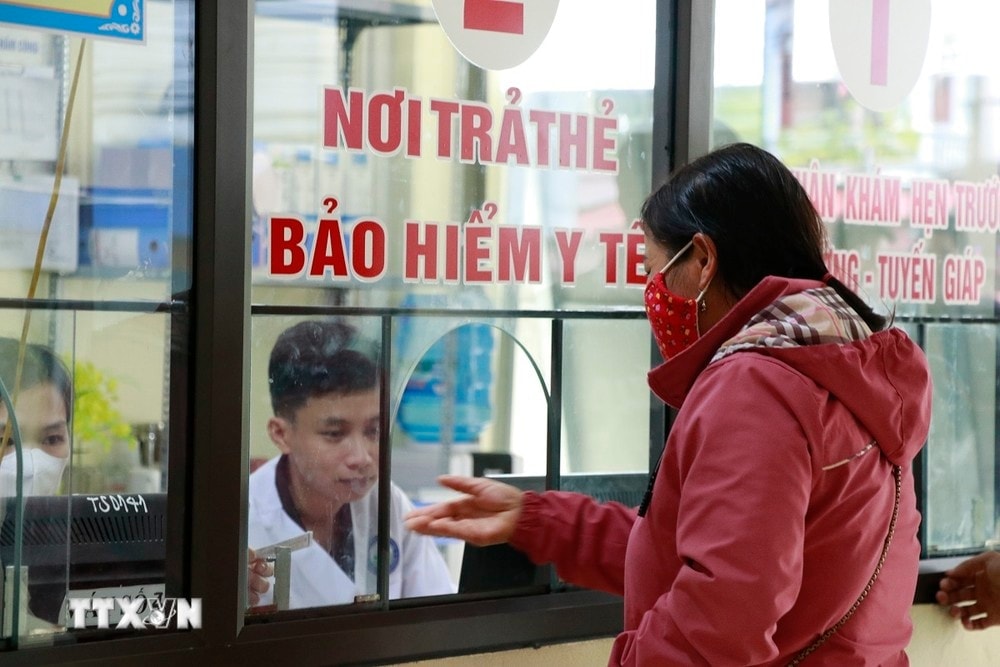The Ministry of Health has just issued a circular regulating the direct payment of medicine and medical equipment costs for people with health insurance cards, clearly stating the conditions, criteria and payment levels...

The Ministry of Health has just issued Circular 22/2024/TT-BYT regulating the direct payment of medicine and medical equipment costs for people with health insurance cards, clearly stating the conditions, criteria and payment levels...
The circular has received special attention from the public, considering it a practical solution for patients in the context of many hospitals lacking local medicines and medical supplies, and health insurance patients having to buy from outside...
According to Director of the Health Insurance Department Tran Thi Trang, there is currently the Law on Bidding, Decree No. 24/2024/ND-CP of the Government detailing a number of articles and measures to implement the Law on Bidding on contractor selection, circulars of the Ministry of Planning and Investment, and the Ministry of Health providing guidance on the procurement of medicines, equipment, and medical supplies.
However, this is a special item, so even in cases where medical facilities have implemented all procurement and bidding solutions, there is still a risk of shortages of drugs and supplies due to supply disruptions or no bidding units, causing local shortages.
To ensure the rights of health insurance participants in objective cases of lack of medical supplies, the Ministry of Health has supplemented synchronous solutions.
Accordingly, in the draft revised and supplemented Law on Health Insurance this time, a mechanism for transferring drugs between medical examination and treatment facilities is added in case of shortage of drugs and supplies and the patient cannot be transferred elsewhere.
“For example, Viet Duc Friendship Hospital is a final-level surgical hospital, so in case of a shortage of drugs and medical supplies (due to failure to purchase due to objective factors), Bach Mai Hospital can support the transfer and the payment price is the price that health insurance pays to Bach Mai Hospital. Bach Mai Hospital will summarize the payment records for the social insurance agency using the procurement bidding price. Thus, timely treatment for patients is still guaranteed,” the Director of the Health Insurance Department instructed.
Besides, in case the patient has been transferred but there is still no medicine, due to local shortages, broken supply sources, while drug retail establishments in some places have supplies or medicine for each patient's case, the patient can buy it outside and pay the social insurance agency for the part that has been spent.
However, Ms. Trang said that during the policy development process, there were also opinions that instead of patients having to pay directly to the social insurance agency, there should be a mechanism for the hospital to pay the patient, then the hospital pays back to the social insurance agency, to reduce procedures for the patient.
Therefore, the Ministry of Health has proposed amendments to Article 31 of the Law on Health Insurance this time. If approved by the National Assembly, patients will have two options: Pay directly to the medical facility and the medical facility will pay back to the social insurance agency.
In case the medical facility does not sign a contract with health insurance, the patient will have to pay directly to the social insurance agency.
"Thus, there is a synchronous mechanism in protecting the rights of patients, but most importantly, the conditions have been strictly regulated in the prescription of purchasing drugs from outside, or transferring drugs, to reduce the situation of prescribing drugs from outside or adjusting drugs widely. Direct payment or drug transfer is not an incentive solution, but only implemented in cases of objective force majeure when medical facilities do not provide enough drugs and medical supplies for each patient, not a routine practice of medical facilities", emphasized Department Director Tran Thi Trang.
However, according to the Director of the Department of Health Insurance, not all cases of purchasing drugs and medical equipment from outside when the hospital does not provide enough are directly paid by health insurance, but only in the following cases: Drugs on the List of Rare Drugs and medical equipment of type C or D (except for in vitro diagnostic medical equipment, personal medical equipment, medical equipment on the list of medical equipment issued by the Minister of Health are purchased and sold like normal goods).
Documents and procedures for direct payment include photocopies (with originals for comparison): Health insurance card, identity card; hospital discharge papers, medical examination form or medical examination book; invoices and related documents.
Direct payment procedure: The patient or relative (or legal representative) directly submits the application to the district-level social insurance agency where they reside. The district-level social insurance agency is responsible for receiving the patient's payment request and issuing a receipt. If the application is not complete according to regulations, instructions will be provided for complete supplementation.
To be paid for health insurance, the buyer must present to the social insurance agency a valid prescription and medical supplies prescribed by a doctor as the basis for payment. The social insurance agency is responsible for receiving the application and paying the patient directly for the cost they purchased within 40 days.
Within 40 days from the date of receipt of the complete payment request, the health insurance assessment must be completed and the medical examination and treatment costs paid to the patient or the patient's relatives or legal representative must be paid. In case of non-payment, a written response must be given stating the reason.
This Circular takes effect from January 1, 2025. In case a patient enters a medical examination and treatment facility for examination and treatment before the effective date of this Circular but ends treatment after the effective date of this Circular, the provisions of this Circular shall apply.
TH (according to VNA)